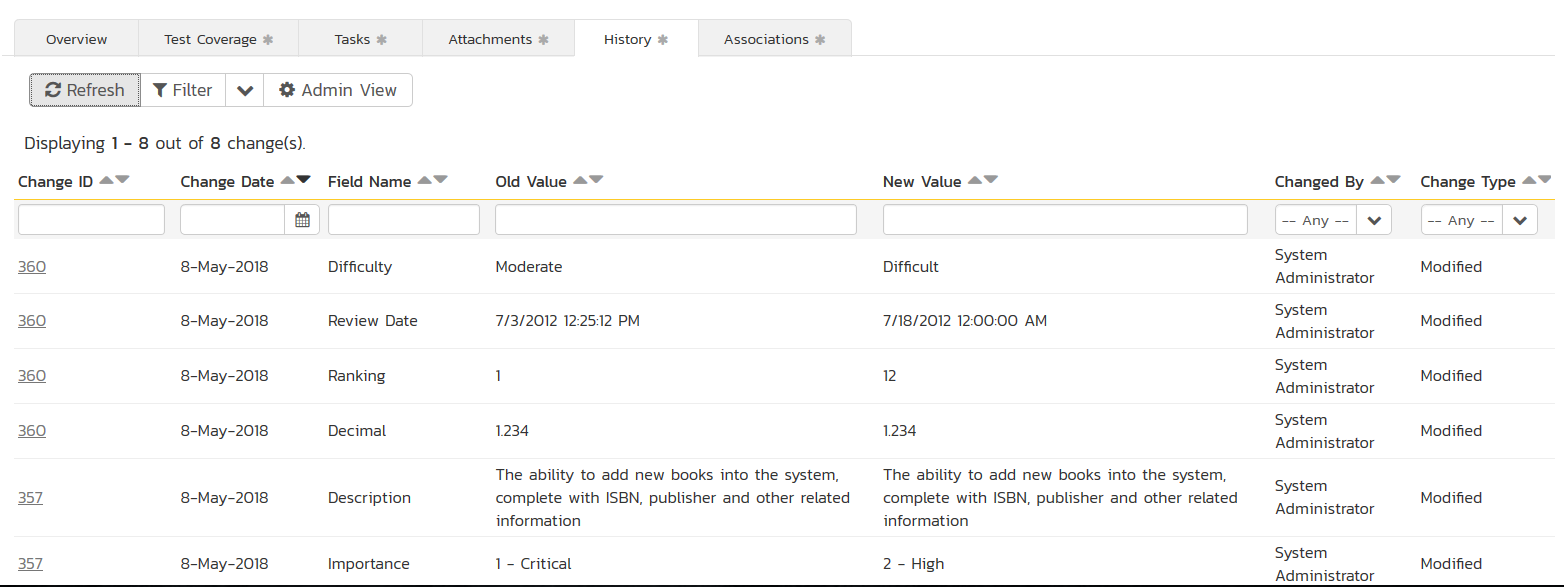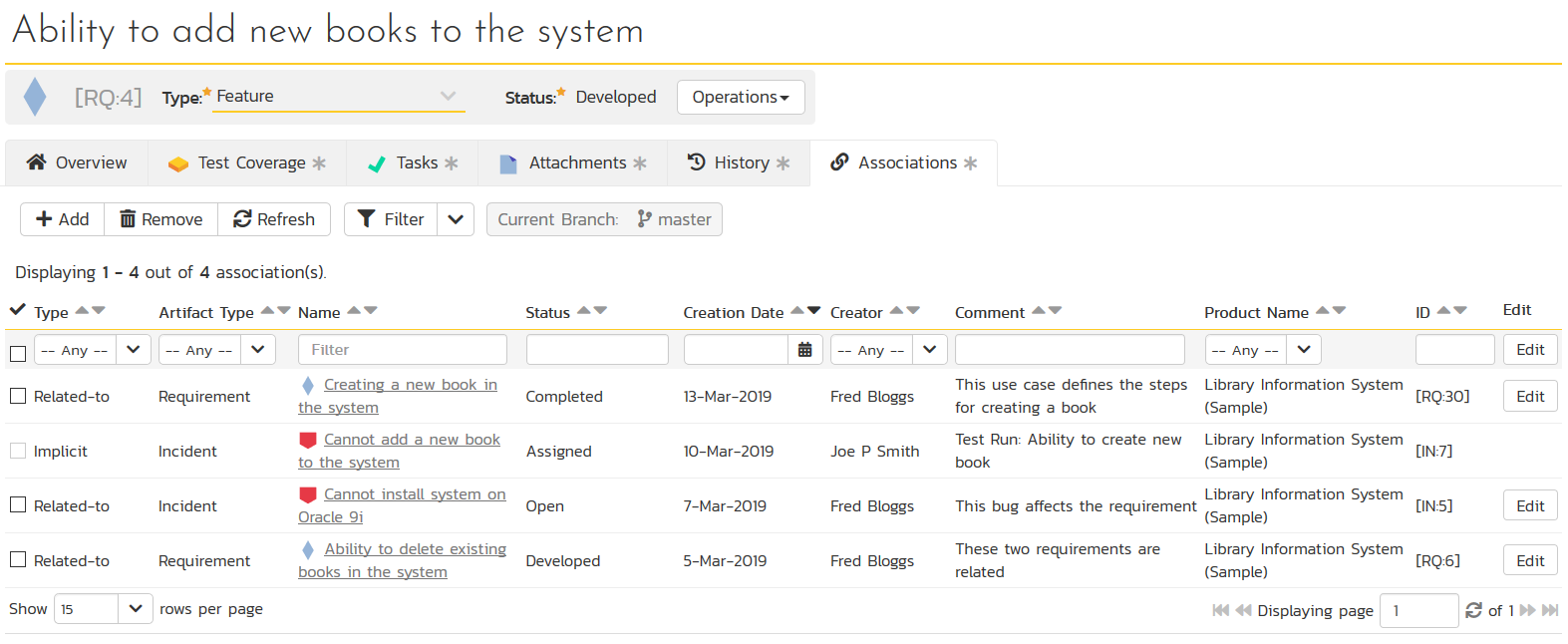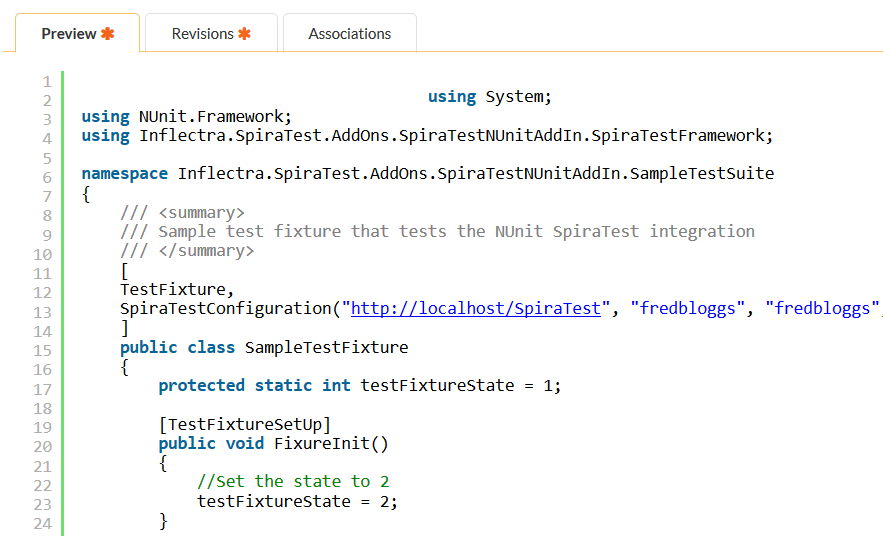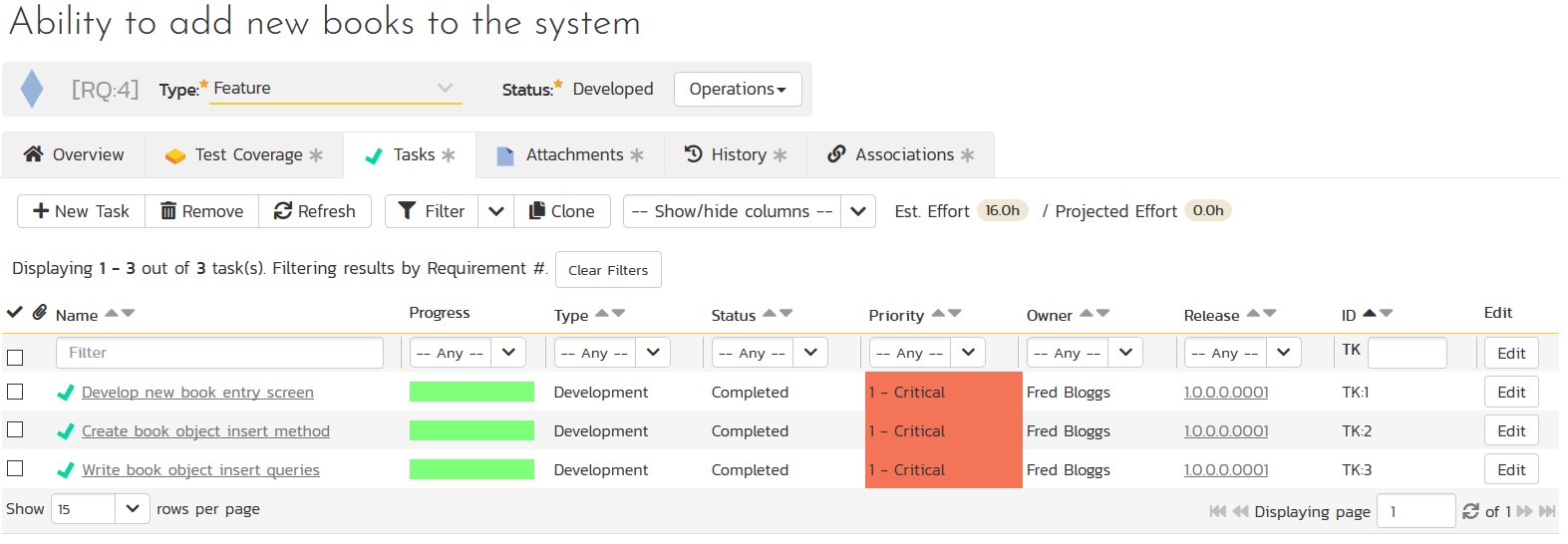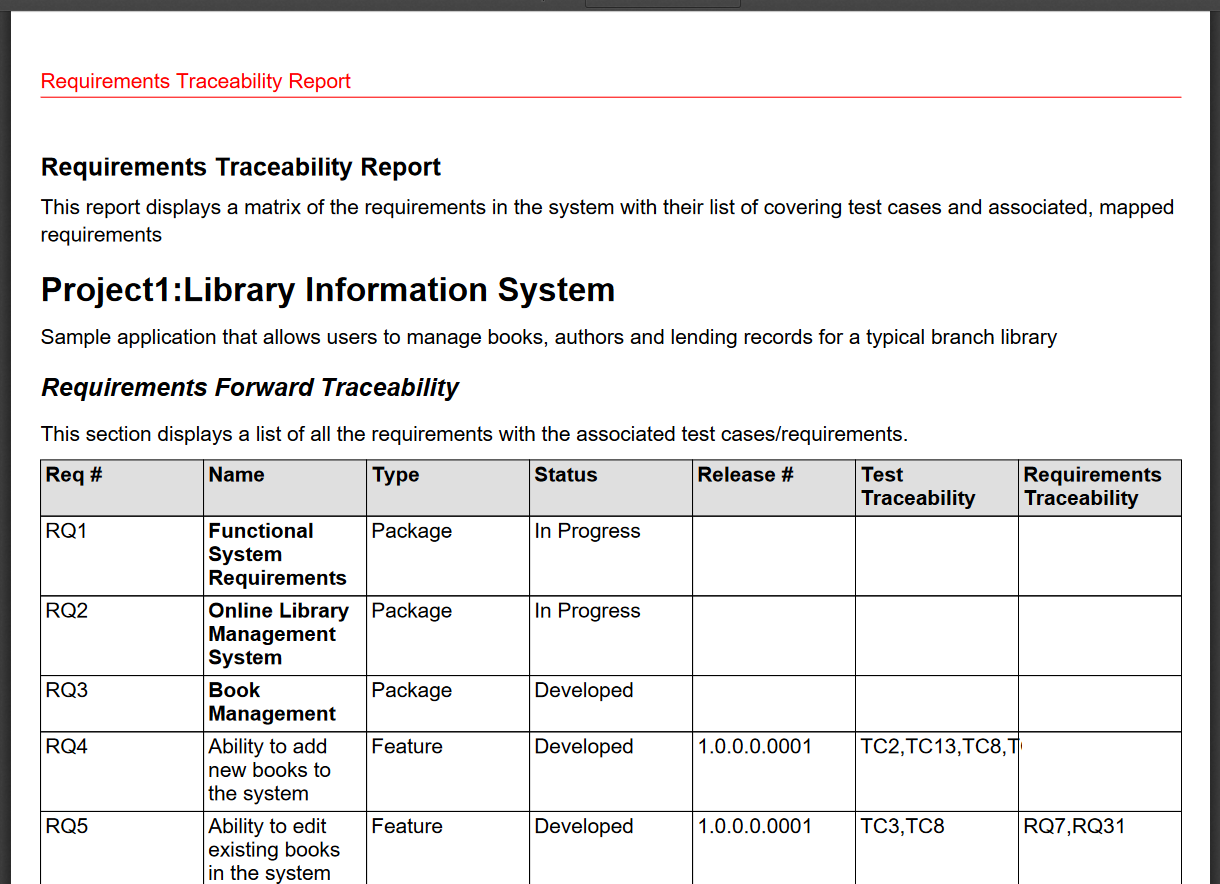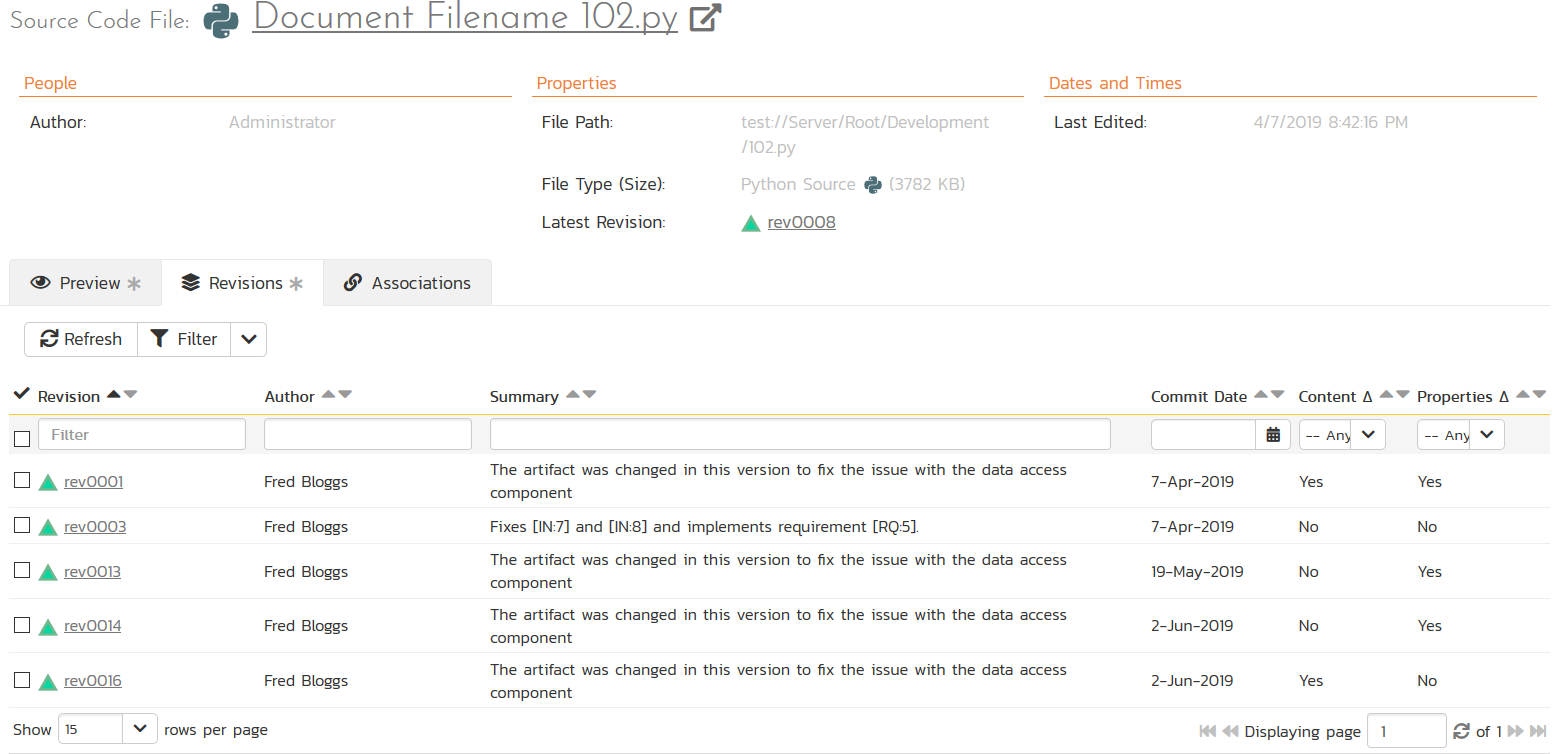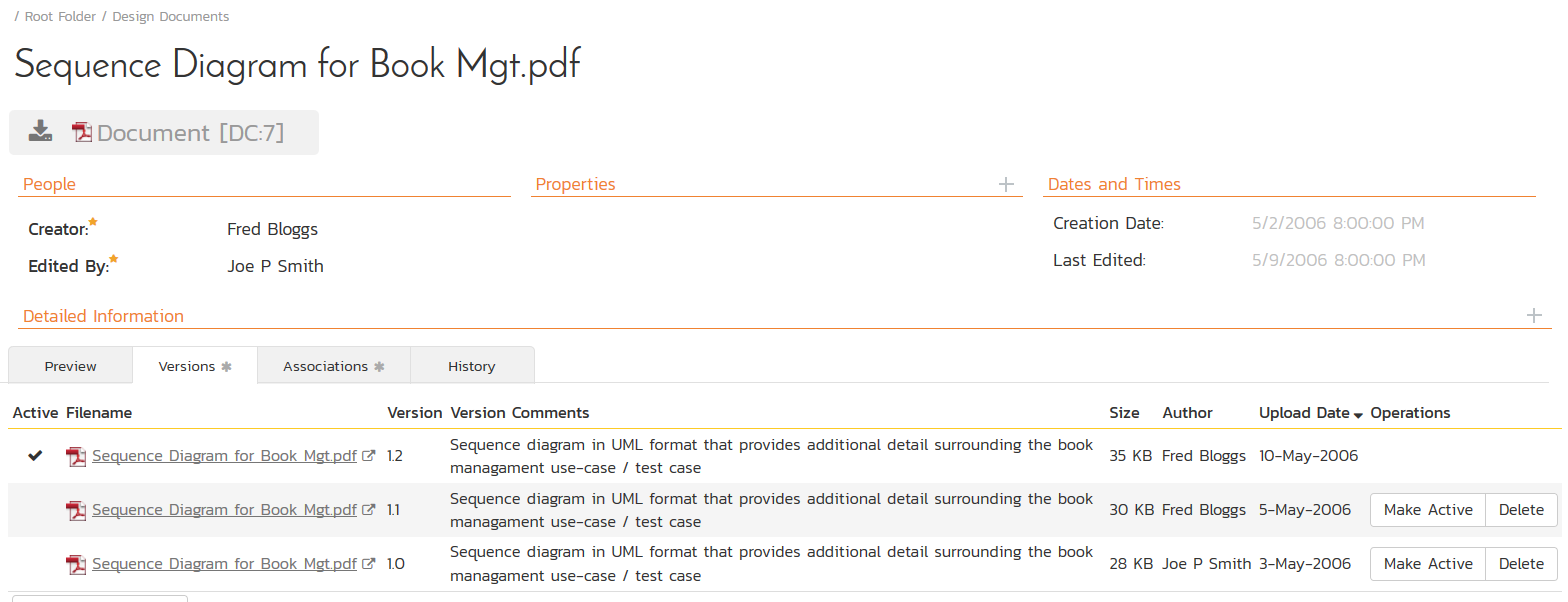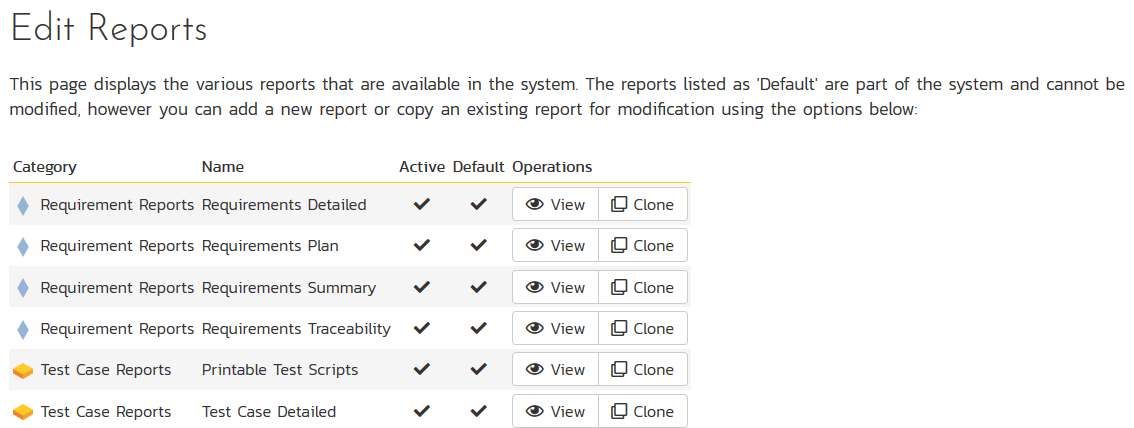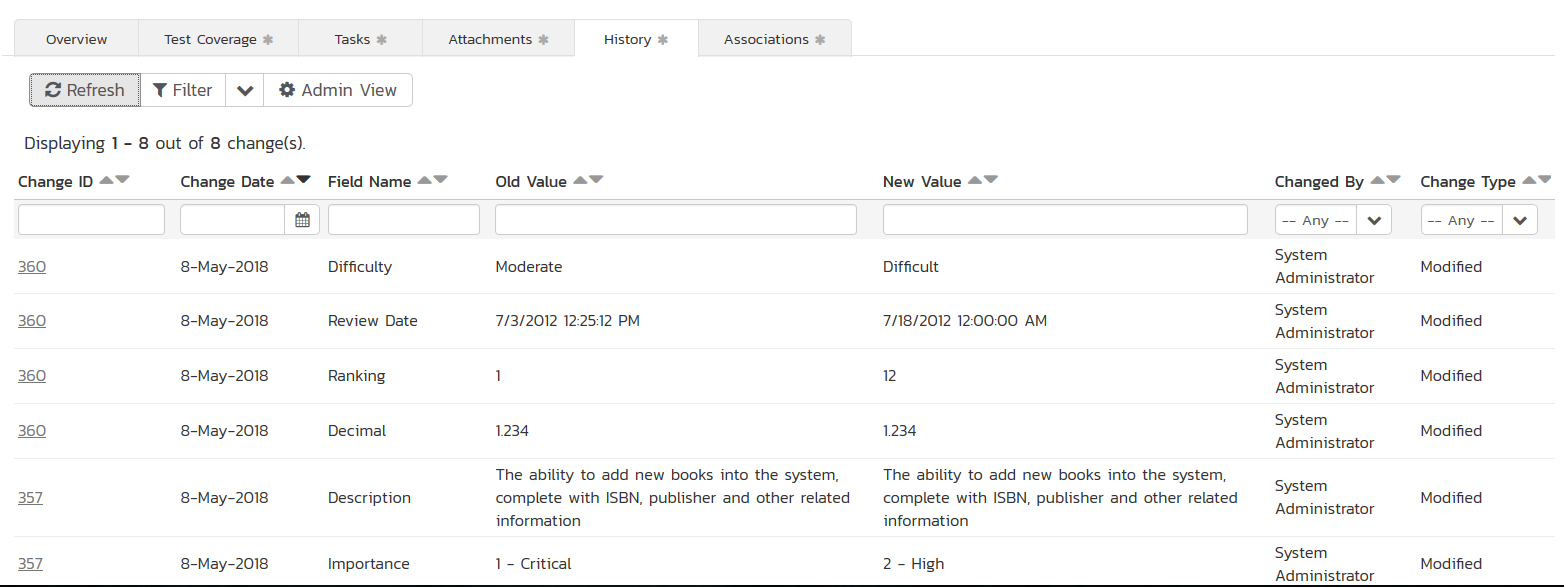Planning
As part of the initial aviation software development process, the following five key plans need to be created:
- Plan for Software Aspects of Certification (PSAC)
- Software Development Plan (SDP)
- Software Configuration Management Plan (SCMP)
- Software Quality Assurance Plan (SQAP)
- Software Verification Plan (SVP).
SpiraTest provides a central document repository where you can store these plans, and upload revisions into the version-control system so that the latest versions of the plans are available for immediate inspection as well as the pedigree of the documents including all prior revisions.
Requirements management
Requirements traceability is concerned with documenting the life of a requirement. It should be possible to trace back to the origin of each requirement and every change made to the requirement should therefore be documented in order to achieve traceability. Even the use of the requirement after the implemented features have been deployed and used should be traceable.
SpiraTest securely and automatically stores any and all field changes to artifacts (e.g. requirements, test cases, test steps) in the system. The Audit Trail includes the field's old value, new value, name of the user who made the change, and date and time. These records can then be printed out along with the artifact through the reports center.
In addition, SpiraTest provides vertical traceability from requirements to their parents and horizontal traceability to other associated requirements. The built-in requirements traceability (RTM) report provides a comprehensive snapshot of the links between the different requirements as well as the link to the associated testing and verification assets.
Development
DO-178C is not intended as a software development standard and is methodology-agnostic provided that the appropriate objectives and levels of rigor are met. It does require that traceability from system requirements to all source code or executable object code is maintained.
SpiraTeam provides the real-time traceability from requirements, defects and sub-tasks to source code revisions and object code assets provided that they are maintained in a linked source code repository.
Verification
The verification phase of DO-178C requires that the appropriate verification cases (test cases) and verification procedures are developed and maintained in a version-controlled repository with appropriate change-tracking in place. In addition, it requires that the verification phase includes an analysis of all code as well as an audit of the traceability from tests and results to all requirements.
When you define the requirements in SpiraTest using the requirements module, you can tie the verification cases, verification procedures, test results, defects and any corrective actions to these source requirements. This end-to-end traceability allows you to prove that all of the required features have been fully tested and that all required verification scenarios have been executed, and that all reported defects have been corrected.
Configuration management
The DO-178C configuration management process is responsible for handling problem reports, changes and related activities. It typically needs to provide archive and revision identification of source code, development, testing and staging environments, software integration tools, and all other documents, software and hardware.
SpiraTeam and TaraVault provide integrated, enterprise source code and document management capabilities, that let you trace the revisions in the controlled code and documents to specific requirements, test cases, tasks or defect reports.
SpiraTeam provides built-in document management and version control capabilities that let you centrally control changes and revisions to documents, with built-in audit and change tracking.
SpiraTest provides a robust set of standard reports that are able to clearly document the activities that have taken place in terms of requirements revisions and signoff, verification case development, approval and execution, the raising of problem reports, the execution of automated integration tests and the configuration of the various hardware and software platforms that the system has been verified against.
Quality assurance
The QA process performs reviews and audits to show compliance with DO-178C. The interface to the certification authority is also handled by the quality assurance process.
SpiraTest provides a transparent version control and change-tracking system that allows the certification authority to inspect the change records for the requirements definition and verification activities.
Disclaimer
DO-178C specifies that software can automate, assist or otherwise handle or help in the DO-178C processes. However, all verification and testing tools used for DO-178C development must be part of the overall certification process that also includes the associated development tools, processes and documents.
A third-party tool such as SpiraTest, SpiraTeam or TaraVault can be qualified as a verification tool, whereas development tools must have been themselves developed following the DO-178 process. At Inflectra, we believe that our suite contains the required technical elements for a compliant system, however it is up to each customer to verify that their implementation of SpiraTest meets their certification needs as part of their overall quality assurance process.


